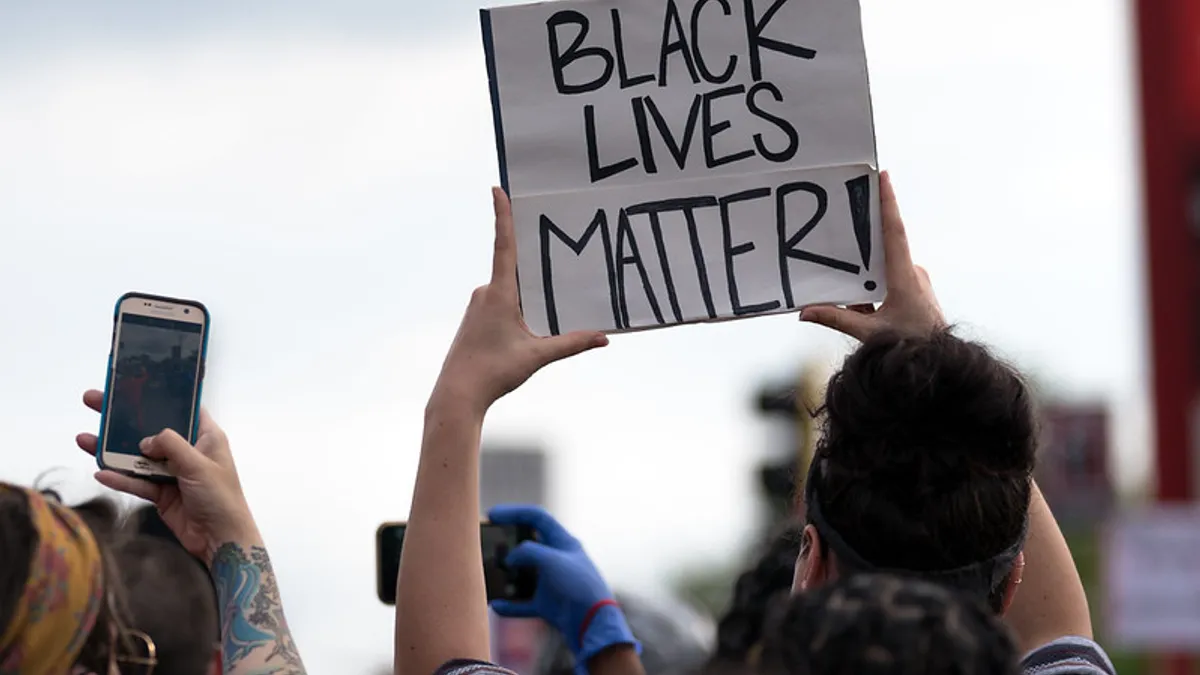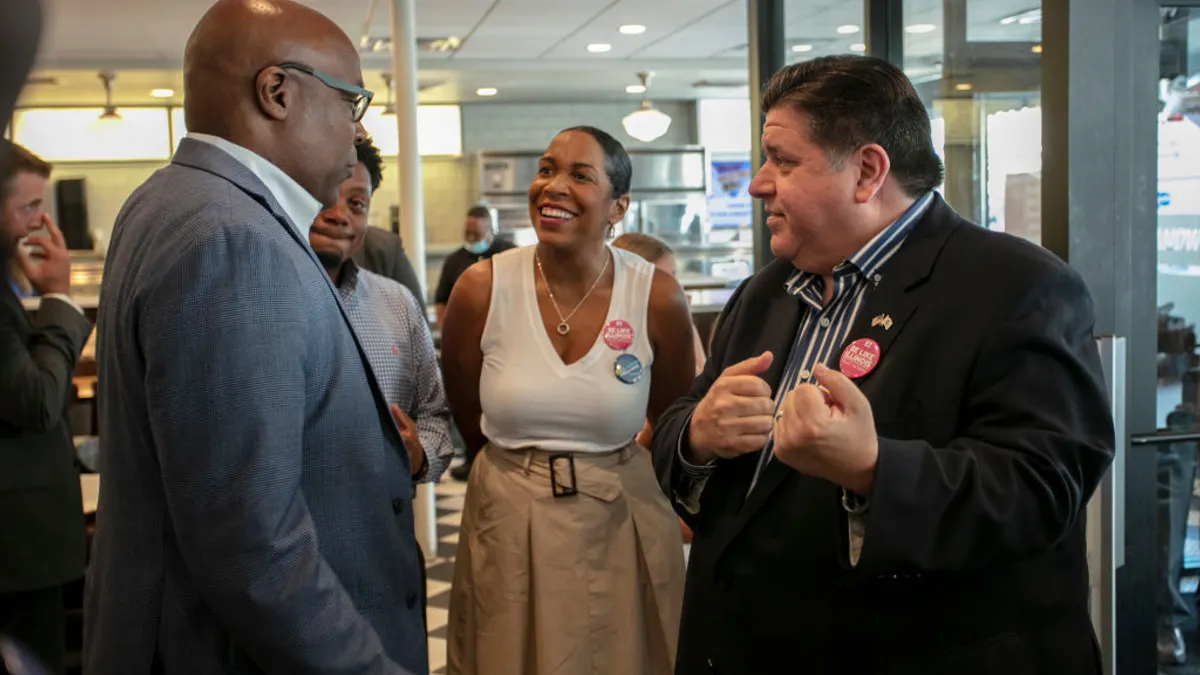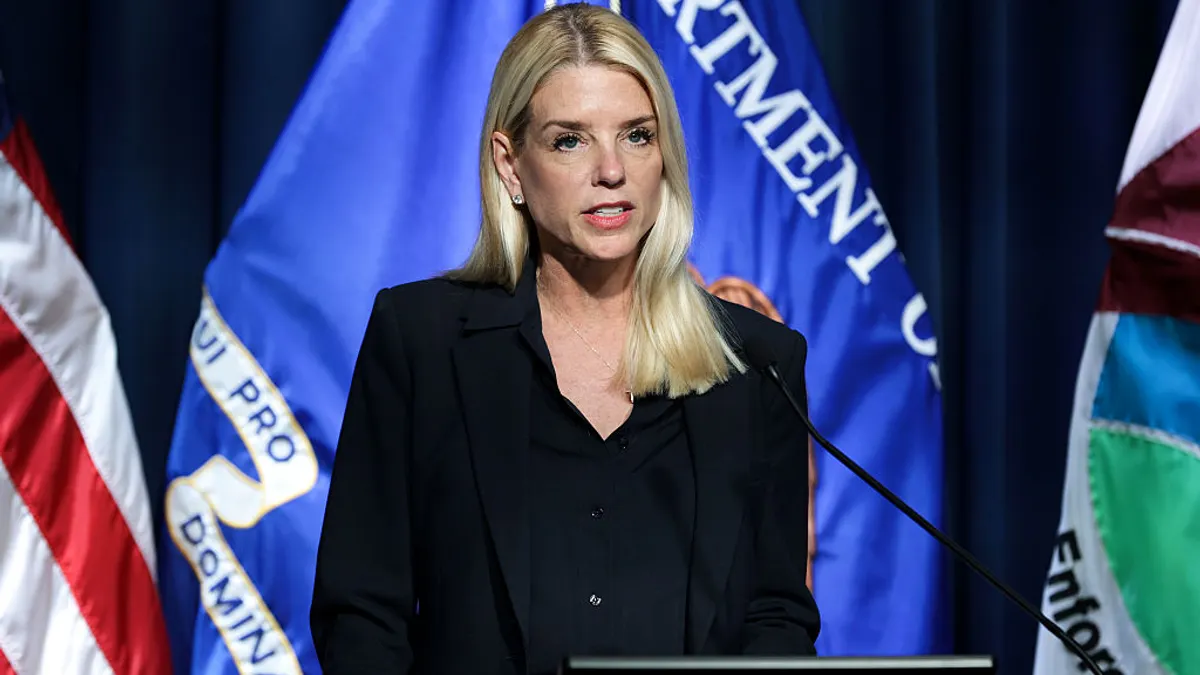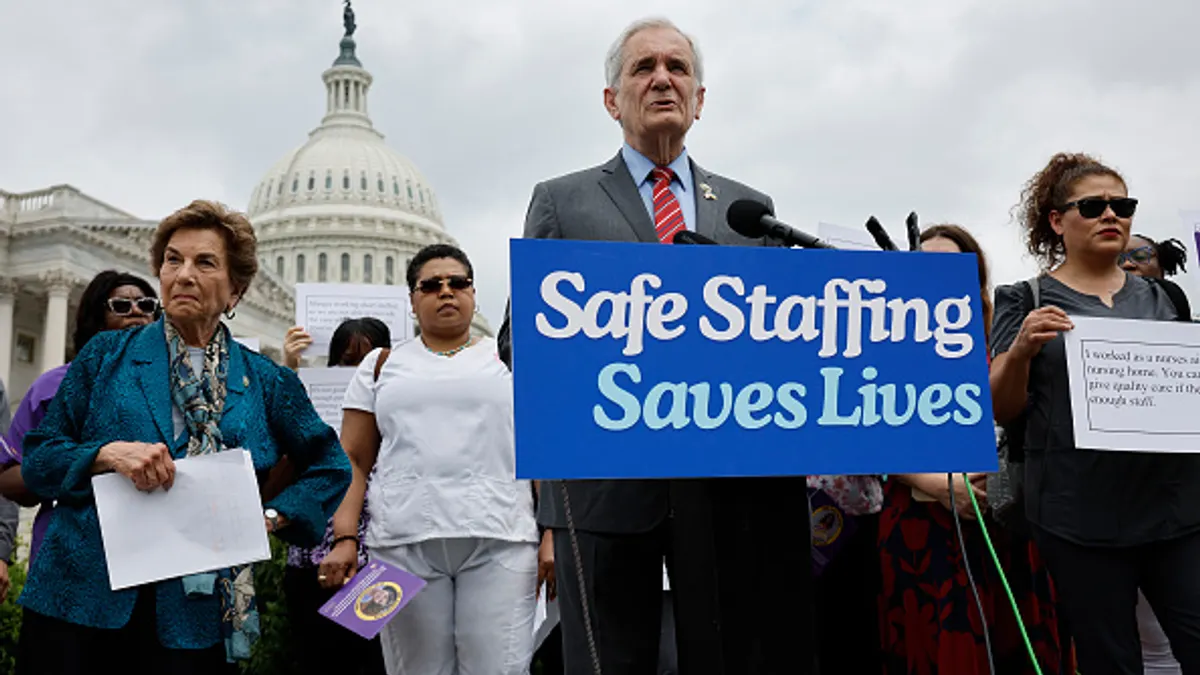Shortly after the May 25 killing of George Floyd, Morgan Stanley Chairman and CEO James Gorman took to LinkedIn to reaffirm the company's commitment to diversity and inclusion. One Black leader would join the firm's "most senior governing body," while another would step onto its management committee, he announced. Morgan Stanley would donate $5 million and match employee contributions to the NAACP Legal Defense Fund. And the firm would add to its core values a commitment to diversity and inclusion.
Just over two weeks later, Morgan Stanley's former head of diversity filed a lawsuit against the company, introducing her allegations of race discrimination and retaliation by highlighting the alleged hypocrisy of Gorman's statement.
"These measures would appear, on their face, to be genuine efforts at increasing inclusion and diversity at Morgan Stanley," the complaint read. "Unfortunately, time and time again, Morgan Stanley has utterly failed when it has had to actually look itself in the mirror and decide whether it wants to truly address its deepseated racially unjust policies that have resulted in alarmingly low and disproportionate numbers of Black and other employees of color amongst its ranks, and, in particular, its executive ranks."
Morgan Stanley, which rejected the allegations in statements made to various media outlets, was not the only employer to face such criticism. Whole Foods workers filed suit against the grocer in July, alleging that while the store had marketed its support for the Black Lives Matter movement, it punished workers who donned masks in support of the movement by implementing a previously unenforced dress code.
As employers reacted to Floyd's death and the protests that followed, two types of responses emerged. One set of employers "paid lip service" to the fight against racial injustice, VH Included Consulting CEO Katee Van Horn observed. Another expressed support with authenticity.
This authenticity does not erase the possibility of employees speaking out when they detect hypocrisy. But it establishes the grounds for communication and improvement by pushing employers to act with honesty and humility as they grapple with racial injustice and other social problems, sources told HR Dive.
Authenticity above all else
As Floyd's death ignited protests around the globe, employers began considering how they could approach the topic, Van Horn, a diversity and inclusion consultant, said. "The companies I'm working for, there are a lot of different right answers," she said. A good response hinges on authenticity, she said.
"I can't think of any more important attribute," Avalara CHRO Kathleen Weslock said. "Authenticity and truth matter now than ever before." When employers display "acts of kindness and authenticity," they signal their support to employees.
Ensuring authenticity is a job that falls to HR, at least in part. "My job, as well as the job of our PR department, is to make sure we never get out ahead of an issue without being true to ourselves," Weslock said. "We're the moral compass."
Before an employer releases a statement on a social issue, it needs to discuss what it is doing internally to address that issue, Weslock said. Without this step, employers may prioritize public image over internal reputation. "Messages that are public must resonate with employees first and the public second," she said. "That's where I see some of this inauthenticity really ringing true."
Van Horn questioned the authenticity of employers whose public comments on Floyd's death came without precursors.
"If they've never spoken out on a social justice issue before and this is the first time they're sharing something internally or externally, it makes me wonder if they're saying something to say something," she said.
RedPeg Marketing Director of Employee Experience Pearlie Oni voiced a similar concern. "Theoretically, companies would've been working on D&I long before George Floyd, long before Breonna Taylor," she said. "That would provide a hurdle if you hadn't been working on this before. That's a fair criticism, but it doesn't mean it's too late."
If recent events pushed employers to initiate D&I efforts, and specifically a commitment to fighting racial injustice internally and externally, they should acknowledge that, Oni said.
For Van Horn, authentic responses to Floyd's death always include three key words: "Black lives matter." "Companies may not think it's a big deal to avoid saying it explicitly, but allyship is no longer a sideline sport," she said. "You have to be active. You have to stand arm in arm with the folks who have these lived experiences, and you have to do what's right."
Authenticity means action
Authenticity in public action should follow or prompt internal action, Oni said. Weslock and Van Horn agreed. "If you're an employer and you're going to release something publicly, you better be ready to walk the walk how you talk the talk," Oni said.
Without action, employers engage in performative allyship, Oni said. "If you're not going to do anything internally, it's probably best to do nothing externally. You have to follow up external action with internal action, otherwise you're going to make the situation worse."
As employers evaluate their statements, they arrive at an opportunity to evaluate their internal progress. "Hold up the mirror to say 'Ok, did you really say what you mean? Did you mean what you say?'" Weslock said. At this point, employers may need to reconsider their actions. "It's a good opportunity to course correct if you do get questions or if you do get concerns," she said.
Van Horn noted a similar effect. "Good messaging opens up dialogue and makes room for self improvement," she said. She encouraged employers to take a stance, emphasizing that action can outweigh missteps. "Say something, even if it's the wrong thing," she said. "It will start the conversation. It will start action."
Messaging has this effect only when those behind it are willing to engage with critics. This requires listening. "As an HR team, listen. Pause to actually say 'this is what we're hearing back and we're going to take a minute to dig in,'" she said. HR teams are trained to take action and resolve problems, Van Horn noted. But when HR takes time to listen to employees voicing their concerns, they create "psychological safe space" for workers.
Listening is no easy task — "HR needs to focus on having the humility to welcome and internalize criticism," Van Horn said. But it propels harmony in the workplace, Weslock said.
Trained as a labor lawyer, Weslock has observed that employers can avoid employee backlash when they are so attuned to the workforce that they understand what issues employees face and make them feel valued and heard. "What I'm seeing, where employees are protesting, it's because they either see the hypocrisy or they don't feel valued or heard," she said.
In some scenarios, employers need not take further action than listening. "Sometimes that's enough," Oni said, "to say that we see what's going on and open the doors for listening."
Listening does not have to be a passive activity. Avalara conducts multiple employee surveys a year, interviews focus groups and opens up channels to certain topics on Slack, all in the name of listening, Weslock said.
Employers may choose to respond to social issues in more concrete ways. Van Horn has seen employers bring in employee assistance programs to offer employees extra support as they cope with the fallout of a pandemic and the tragedies of racial injustice. Oni has observed some employers form employee resource groups as a response to Floyd's killing. If employers choose this route, they ought to be intentional about the groups' purposes, she said.
As employers move forward with such initiatives, they should track goals and progress. Followup is as important as action itself. "The best way to ensure there's no hypocrisy is to measure. What are you doing on diversity? Recruiting? Equal pay? Are we doing enough? Are we raising the bar?" Weslock said.
With the right response, employers can progress, Weslock said. "In times of crisis, a lot of good can come out. I'm hopeful and encouraged that the world will be a different place in a few years from now."





















